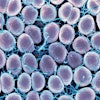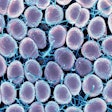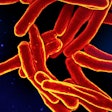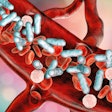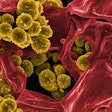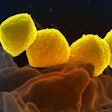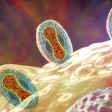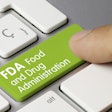Dear LabPulse Member,
As we went to press, we received stunning news: The American Association for Clinical Chemistry (AACC) has moved its annual meeting to December, from its original date in July.
As with many other medical meetings that have been postponed or canceled in recent weeks, the AACC said it was making the move due to concerns over the novel coronavirus. The new dates are December 13-17, at McCormick Place in Chicago.
In other news, as of April 6, more than 1.2 million cases of COVID-19 had been confirmed around the world, with more than 67,000 deaths, according to World Health Organization (WHO) figures. The novel coronavirus has wreaked havoc on medical, economic, social, and educational systems.
The U.S. accounts for more than 300,000 confirmed cases and 30,000 deaths of the WHO's total tally. Millions of U.S. citizens are now doing their part by sheltering in place and hoping to flatten the curve, per the advice of public health officials.
The number of confirmed cases would be even higher with greater deployment of testing. Under fire for a big backlog, Quest Diagnostics has ramped up testing and advised providers on how to prioritize diagnostic use for the most important cases.
During an April 5 press briefing by the White House coronavirus task force, as the nation faced the coming peak of the pandemic in the U.S. during the Easter holiday, President Donald Trump said that tests have been conducted on and reported for 1.67 million people to date. Officials once again cited the importance of the 15-minute point-of-care molecular test developed by Abbott, which they said is being rolled out to 1,200 public health labs in all U.S. states, as well as being accessible through an installed base of 18,000.
Antibody tests are also now poised to play an important role, though there are still uncertainties about what the results mean, how the tests should be deployed, and how widely available they will be. Cellex's immunoglobulin G/immunoglobulin M (IgG/IgM) rapid test was the first to get an emergency use authorization from the U.S. Food and Drug Administration.
Other companies -- such as Ortho Clinical Diagnostics -- have notified the agency that they have validated and are planning to offer serology tests. We talked to American Society for Microbiology President Dr. Robin Patel and others about how labs are proceeding with new antibody tests at a time of emergency.
Meanwhile, scientists are still getting better acquainted with the virus itself. Researchers from China reported lab- and imaging-confirmed cases of SARS-CoV-2 in people who were infected in a bathhouse far away from Wuhan, even though it was thought that the high heat of such an environment would not be conducive for transmission.
The pandemic underscores the value of electronic access to information. IT consultant Michael Cannavo proposed the concept of a national clearinghouse of information that could be accessible to physicians who are considering ordering a diagnostic test or imaging study. The growing use of digital pathology systems fits in well with this concept.
Last but certainly not least, we are pleased to publish a new pathology case study, courtesy of University of California, San Francisco lab medicine specialist Alan Wu, PhD. This time around, we present a 57-year-old man who saw a cardiologist for weakness, nausea, weight loss, and dyspnea. Can you make the diagnosis?
